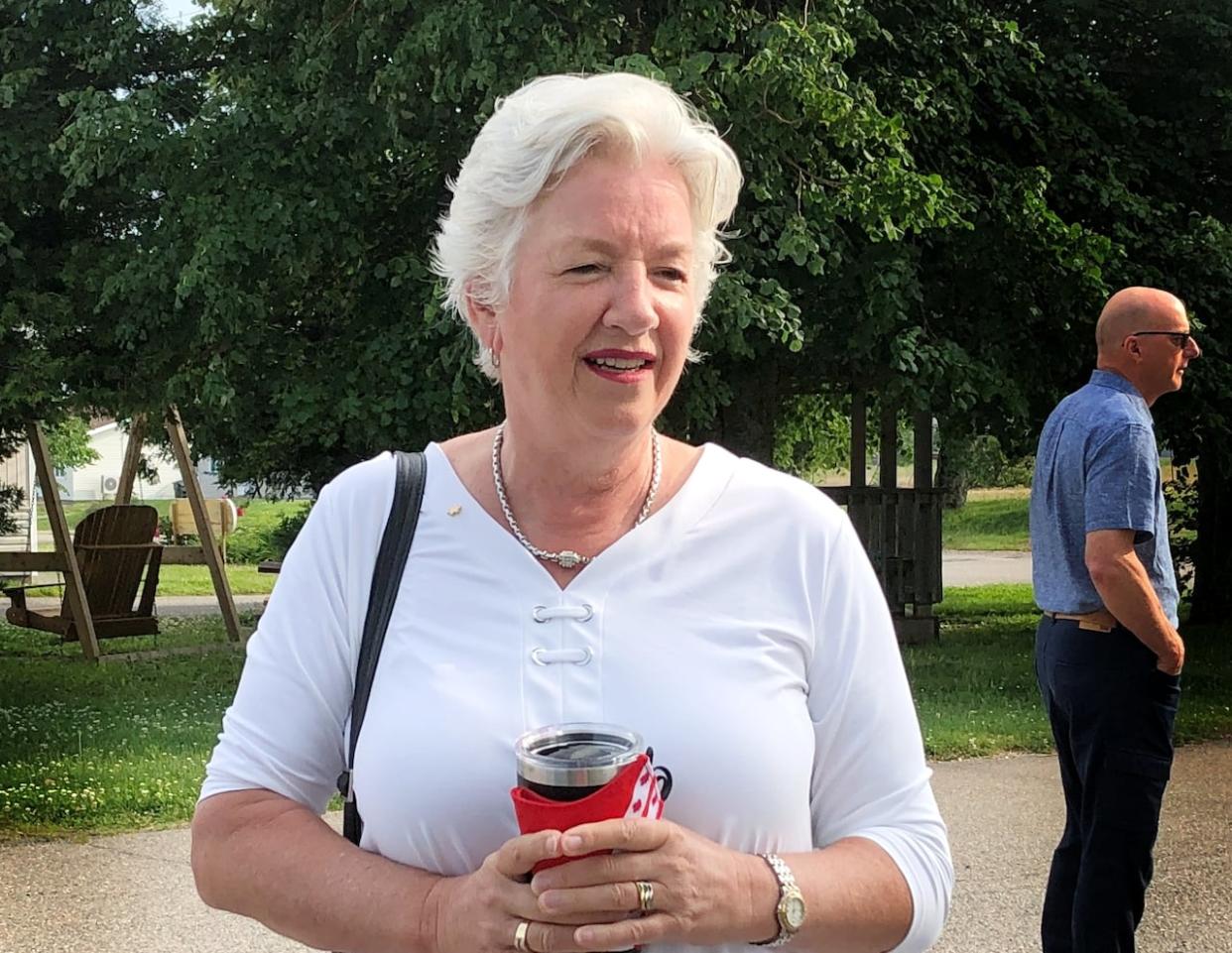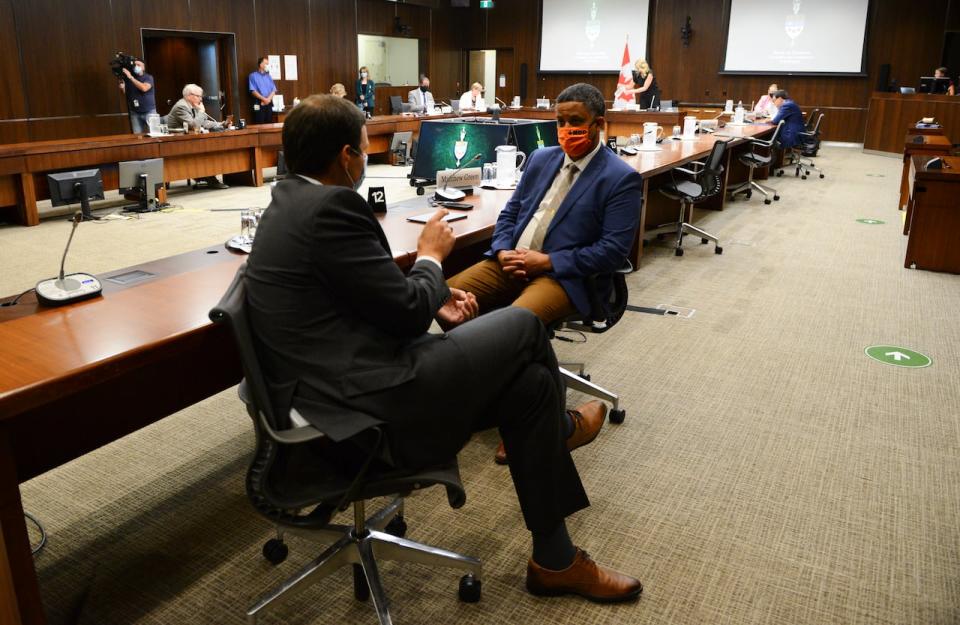Ethics commissioner investigating chair of federal green fund

The federal ethics commissioner has launched an investigation into the chair of the board of directors of a federal green fund after she participated in the approval of more than $200,000 in grants to a private firm she directed.
In a letter to Conservative MP Michael Barrett on Thursday, Ethics Commissioner Konrad von Finckenstein said he will examine the conduct of Sustainable Development Technology Canada (SDTC) board chair Annette Verschuren.
Verschuren is also chair and chief executive officer of NRStor Inc., a Toronto-based energy storage firm. She confirmed to a parliamentary committee last week that as SDTC's chair, she participated in approving grants to NRStor totalling $217,000 in 2020 and 2021.
The grants were part of the federal green fund's efforts during the COVID-19 pandemic to send money to companies with existing funding arrangements with SDTC. The goal of the total funding of $40 million was to help businesses financially survive the challenges caused by the COVID-19 pandemic.
Verschuren has chaired the board of directors of Sustainable Development Technology Canada (SDTC) since 2019. She told committee that she receives an annual salary of $120,000 from NRStor in addition to her remuneration from SDTC.
In a message posted on social media Friday morning, Barrett said she was "another Liberal under investigation for an ethics violation."
Verschuren has not yet responded to an emailed request for comment.
A contested legal opinion
In response to questions from MPs, Verschuren said she had received a legal opinion which validated her decision. The reason she didn't have to recuse herself, she said, is that her firm was part of a group of about 100 companies that received the same level of additional funding from SDTC during the COVID-19 pandemic.
"I took the advice from my lawyer," Verschuren told MPs on the committee. "I received legal advice and I think that was the proper approach."
Verschuren said her company did not receive preferential treatment given that all companies with funding agreements with SDTC received the pandemic-related payments. In total, SDTC provided nearly $40 million in special payments during the pandemic.
Several MPs criticized Verschuren's decision in the NRStor case.
NDP MP Matthew Green said her decision constitutes "at the very least a perceived conflict of interest, if not a very real one."
"Could you not appreciate why the perception to the public, the taxpayers who are watching this, hearing the discrepancies in that line of reasoning, would see this as a problem?" he asked Verschuren.

Conservative MP Damien Kurek, left, talks with NDP MP Matthew Green prior to the start of an ethics committee meeting in Ottawa on July 22, 2020. Green had some pointed questions for the chair of a federal green fund regarding her participation in a decision to award grants to her own firm. (Sean Kilpatrick/The Canadian Press)
Liberal MP Pam Damoff said that with her decades of experience in the business world, Verschuren should have known better.
"Common sense to me would dictate that you would question the legal advice and, out of purely best practice, recuse yourself from that," she said.
Verschuren, the former president of Home Depot Canada, insisted she is satisfied with her actions.
A foundation in turmoil
Last week, the president and CEO of SDTC offered her resignation. It was another blow for the foundation, which was the target of a whistleblower complaint earlier this year.
In her letter of resignation as the head of Sustainable Development Technology Canada (SDTC), Leah Lawrence said her departure was prompted by growing criticism of her organization.
"Given recent media reports, House of Commons committee testimony, and the surrounding controversy, it is clear there has been a sustained and malicious campaign to undermine my leadership," she said in a letter to her board of directors.
"This compromises my future ability to lead the organization and puts me in an untenable situation. And I want to see this organization succeed."
Under its current agreement with the federal Department of Innovation, Science and Economic Development (ISED), SDTC has the mandate to distribute $1 billion to small and medium-sized enterprises in the clean tech sector between 2021 and 2026.
In response to the whistleblowers' complaint, the government commissioned an investigation by the firm Raymond Chabot Grant Thornton, which identified problems with management of conflicts of interest and problematic spending within SDTC.
The government responded by imposing a series of reforms within SDTC and suspending its ability to grant any new funding until those changes are implemented.
The Office of the Auditor General of Canada announced last week it's launching its own investigation into SDTC's spending.


